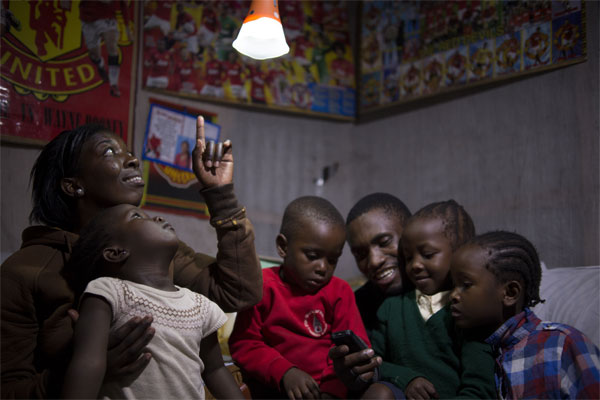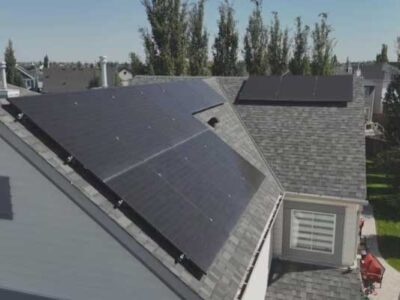The 2016 Climatescope report—which focuses on the state of cleantech markets within 58 developing nations in Africa, Asia, Latin America, & the Middle East—renewable energy investment in developing countries are more attractive than the developed counterparts. Thus, affirming that emerging markets offer excellent opportunities for solar energy investment, which should make investors very happy.
The report adds that emerging markets had more investment in 2015 than its Organisation for Economic Co-Operation (OECD) & developed counterparts (USD 154 billion vs. USD 153 billion) and renewable energy capacity (69.8 GW vs. 59.2 GW).
And this is just the tipping point.
Recently, the Asian Development Bank (ADB) invested heavily in Sri-Lankan solar power, confirming why emerging markets are a hot destination for solar investment. According to CNBC.com, the ADB had approved $50 million in loans to advance Sri-Lankan solar power generation.
Energy specialist at the ADB Mukhtor Khamudkhanov said to CNBC that Sri-Lanka has made gains in adding electricity within the country over the past 20 years, and believes its essential to make the nation’s energy more environmentally sustainable.
“But there is a need to diversify the country’s energy mix toward more renewable and sustainable sources,” he said.
The ADB sees the possibilities in solar energy investment within developing nations. Here is why emerging markets offer abundant opportunities for solar investment.
Reason 1: Falling Prices.
A 2016 Quartz article pinpoints the critical driver why solar is becoming a more attractive investment option. The article points to a World Economic Forum report which said wind and solar are now cost competitive with fossil fuels.
According to the analysis, solar is expected to be half of the electricity price of natural gas within 10-20 years.
However, that may come sooner than expected, as SolarPack bid to provide solar electricity in parts of Chile at 58% lower than natural gas ($29.1/MWh). ClimateScope also projects solar bids are becoming cheaper against their fossil fuel competition.
Falling prices will no doubt sweeten the pot for investors if they are on the fence on investing in solar energy within these regions.
Reason 2: Developing nations are beginning to compete with developed nations on innovation.
Mainland China was ranked 27th in a recent World Economic Forum study on competitiveness while being level or better than many developed nations on innovation. Chief representative of the World Economic Forum’s China outlet David Aikman told China Daily its prowess as an innovator has been the most critical development for them within the past ten years.
The proof is visible with the nation’s solar industry.
China toped globally in total solar capacity in 2016 with 78GW, according to the International Energy Agency Photovoltaic Power System Programme (IEA-PVPS).
If China is any indication, and with billions of middle-class customers coming from emerging markets, expect innovation to explode, and entice more solar development.
Reason 3: Paris Climate Agreement will open up the floodgates for solar investment.
In 2015, the Paris Climate Accord brought over 190 countries to bring global warming to well below 2C of pre-industrial levels, while targeting 1.5C. This opens a wealth of opportunity for solar in developing nations.
The International Finance Corporation, a World Bank group, predicts climate investment for emerging markets will reach USD 23 trillion by 2030. Latin America is primed to grow their solar markets, with USD 3.8 billion invested in 2015. Wind energy was tops in the region with USD 10.7 billion.
With extreme weather events expected to increase from a warming planet and effect those areas most vulnerable, including emerging market countries, will find seek solar investment as a mitigation tool in trying to avoid the worst effects of climate change.
Reason 4: Leapfrogging past fossil fuel infrastructure.
At a social level, there is another reason than for emerging market countries to entirely build a new clean infrastructure from scratch, rather than copy what developed nations went through using fossil fuels to grow their economies.
Former French President Francois Hollande told the Organisation for Economic Co-Operation and Development 2015 Annual meeting, developing nations have a chance to kill two birds with one stone in developing their economies, while supporting low carbon energy systems.
Hollande said leapfrogging in emerging markets past fossil fuel use to clean energy is the equivalent of when mobile phones penetrated the African market, thanks to falling costs. Traditional landline infrastructure became irrelevant.
“The digital revolution and the energy revolution will go hand in hand as in a sense we are talking about the same revolution,” Hollande said to The Guardian.
Whether its falling prices, the rise of innovation, leveraging climate investments or leapfrogging past old infrastructure, developing nations will offer golden opportunities for solar investment.












Comments